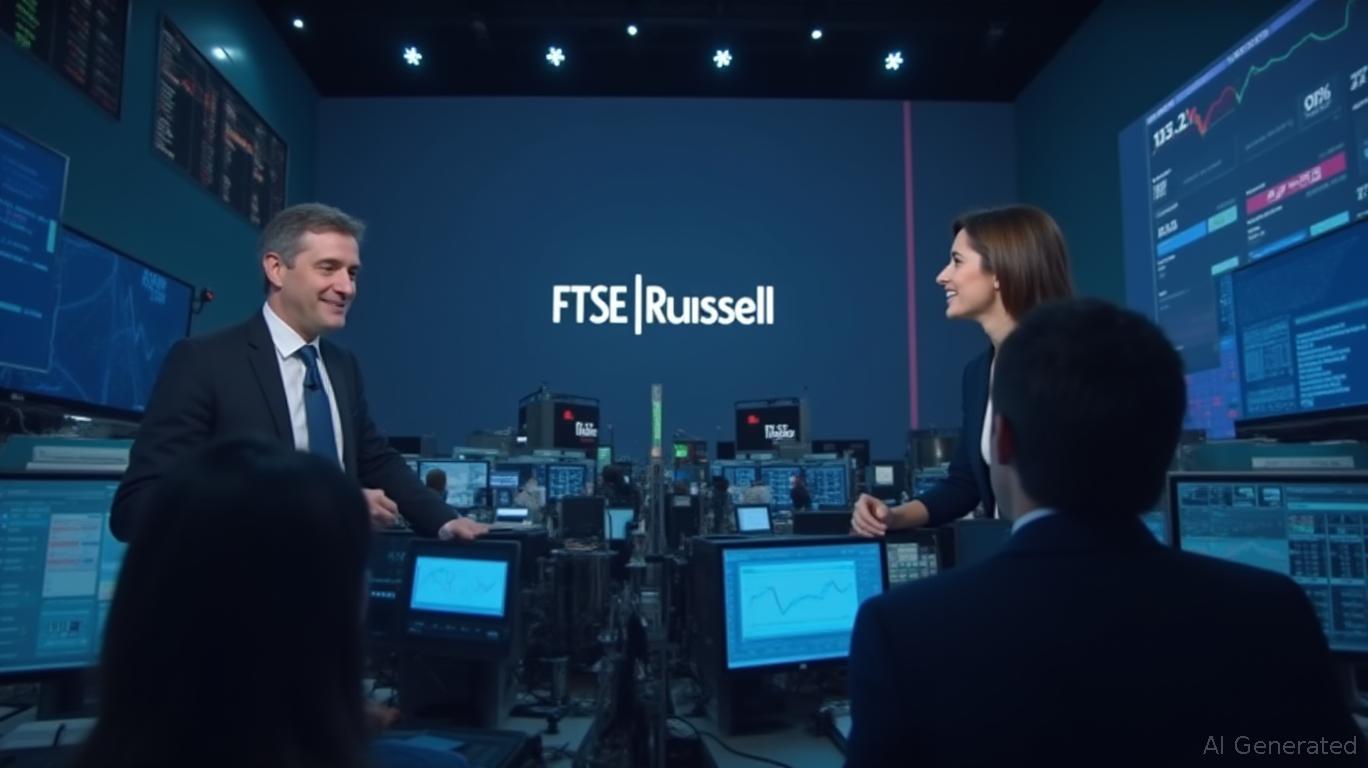Courts Mandate Trump to Provide SNAP Funding, Preventing the Use of Hunger as a Tool
- Federal judges in Rhode Island and Massachusetts ordered the Trump administration to use emergency funds to continue SNAP benefits during the government shutdown, preventing aid suspension for 42 million Americans. - The administration claimed insufficient funds, but plaintiffs highlighted $28.25 billion in available reserves, challenging the legality of halting aid. - Courts deemed the suspension "unlawful," emphasizing the government's duty to use existing tools, while the USDA plans to appeal, risking
On Friday, federal judges in both Rhode Island and Massachusetts directed the Trump administration to keep funding the Supplemental Nutrition Assistance Program (SNAP) throughout the ongoing government shutdown. The courts required the use of emergency contingency funds to avoid an unprecedented halt in food assistance for 42 million Americans with low incomes. These decisions, delivered within hours of each other, represent a major legal setback for the administration’s assertion that there are not enough funds to meet the program’s $8.5 to $9 billion monthly expenses, according to
Earlier this week, the Trump administration stated that SNAP benefits—normally provided through reloadable debit cards—would be suspended in November due to the shutdown, which reached its 33rd day on November 3. The USDA claimed it lacked the authority to distribute funds until Congress approved a new spending bill, a stance House Speaker Mike Johnson described as President Trump being "desperate" to end the deadlock, as reported by

U.S. District Judge John McConnell in Providence issued a temporary restraining order, labeling the benefit suspension as "unlawful" and cautioning that it would cause "irreparable harm" to families struggling with hunger. In a separate ruling in Boston, Judge Indira Talwani gave the administration until Monday to decide whether it would use emergency funds for partial or full payments, according to the BBC. Both judges highlighted the government’s legal responsibility to keep SNAP running, with Talwani insisting the administration must "utilize available resources to meet its obligations."
The USDA’s position has faced criticism from both political parties. Some states, such as California and New York, have promised to use state money to cover any funding gaps, but the federal government has declined to reimburse them, the BBC reported. The administration has also been criticized for prioritizing a $300 million renovation of a White House ballroom at the same time, as noted by The Guardian.
Legal advocates welcomed the court decisions as a win for at-risk communities. A coalition of cities and nonprofit organizations said the rulings "affirm a core value: no administration should exploit hunger for political purposes," according to the BBC. Nevertheless, the USDA announced plans to appeal, which could further delay benefit payments. The process of reloading debit cards, which usually takes one to two weeks, continues to pose logistical difficulties for those relying on SNAP, as reported by
The shutdown, which began due to disputes over immigration and federal spending, has left government agencies with limited personnel and resources. Although the rulings have temporarily protected SNAP benefits, the larger political conflict remains unresolved.
Disclaimer: The content of this article solely reflects the author's opinion and does not represent the platform in any capacity. This article is not intended to serve as a reference for making investment decisions.
You may also like
Hyperliquid News Today: ZEC Whales Face Off: $2 Million in Profits Against $6.75 Million in Losses Before Halving
- Zcash (ZEC) surged over 1,000% in two months, surpassing Monero and Shiba Inu with a $6.24B market cap. - Whale positions on Hyperliquid show $2.03M gains vs. $6.75M losses, reflecting high-stakes speculation. - Halving anticipation and 30% shielded ZEC adoption drive bullish sentiment amid rising institutional demand (Grayscale’s $137M ZEC Trust). - Influencers predict $10K price targets, but market volatility persists ahead of halving with traders balancing bullish and bearish bets.

Landmark Achievement: FTSE Russell Connects Conventional and Blockchain Markets
- FTSE Russell partners with Chainlink to tokenize benchmark indices via blockchain, bridging traditional finance and decentralized tech. - DataLink service enables 24/7 access to Russell/FTSE 100 indices on 50+ blockchains, supporting tokenized assets and real-time institutional transparency. - Initiative aligns with broader strategy including private market indices and follows major banks' tokenization expansions, signaling institutional blockchain adoption. - $18T-index provider aims to accelerate regul

Bitcoin Updates Today: Bitcoin’s October Downturn Sets Stage for a Bullish November Surge
- Bitcoin fell 3.6% in October 2025, its first "red October" since 2018, driven by a $20B liquidation event near its 50-week moving average. - Historical data shows November has delivered gains in 8 of 12 years, with analysts citing technical patterns and macroeconomic easing as bullish catalysts. - Institutional adoption, ETF inflows, and geopolitical easing (e.g., U.S.-China trade truce) reinforce optimism, alongside MicroStrategy's $69B BTC holdings. - Traders anticipate a "Moonvember" rally if Bitcoin

Solana News Update: Monad Airdrop Focuses on Genuine Interaction to Drive User Adoption
- Monad Foundation distributes MON tokens to 5,500 core members and 225,000 crypto users via a strategic airdrop to boost network adoption pre-mainnet. - Anti-sybil measures require EVM/Solana wallet or social media authentication, prioritizing sustained ecosystem engagement over transient users. - Largest allocations reward "core members" through Monad Community Recognizer and Cards, emphasizing decentralized growth and long-term incentives. - Airdrop timing aligns with competitive Layer 1 blockchain land
